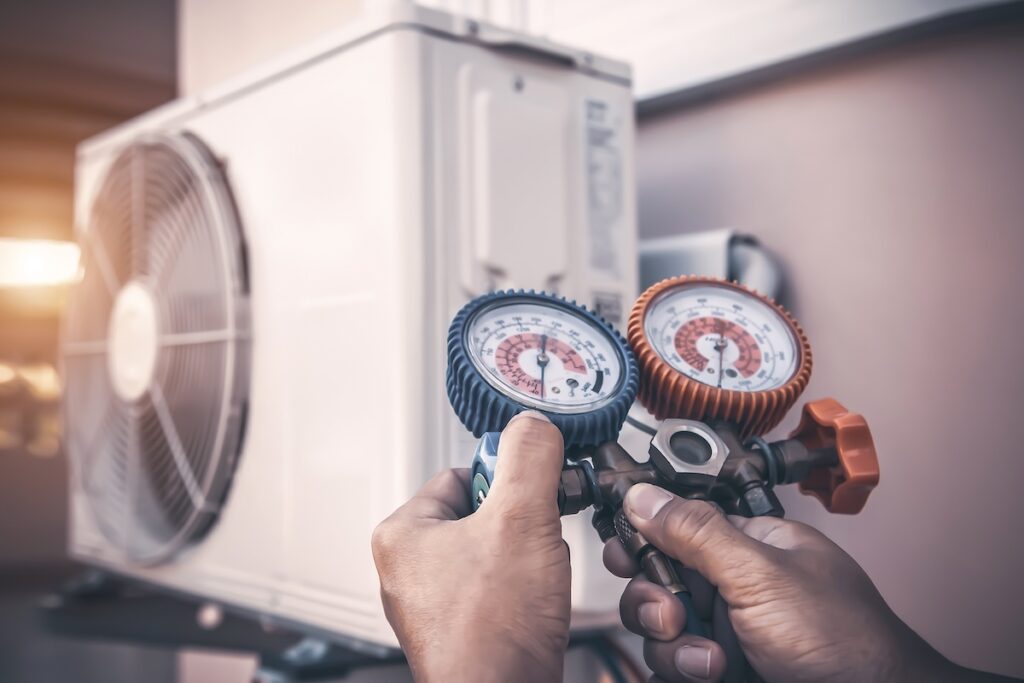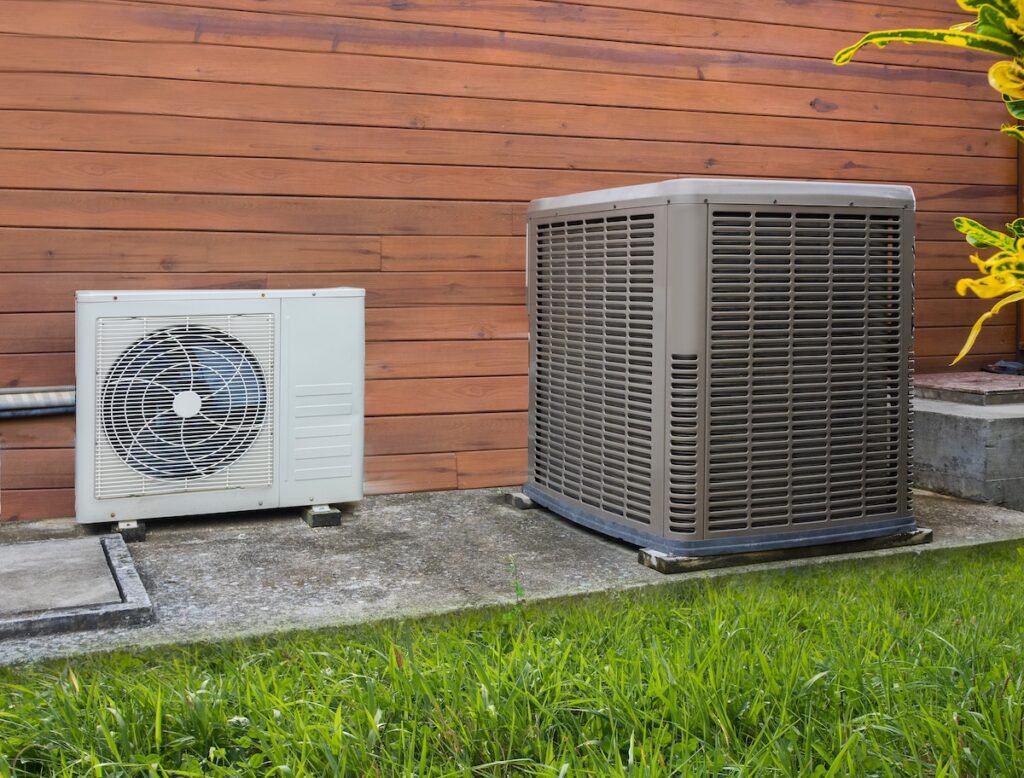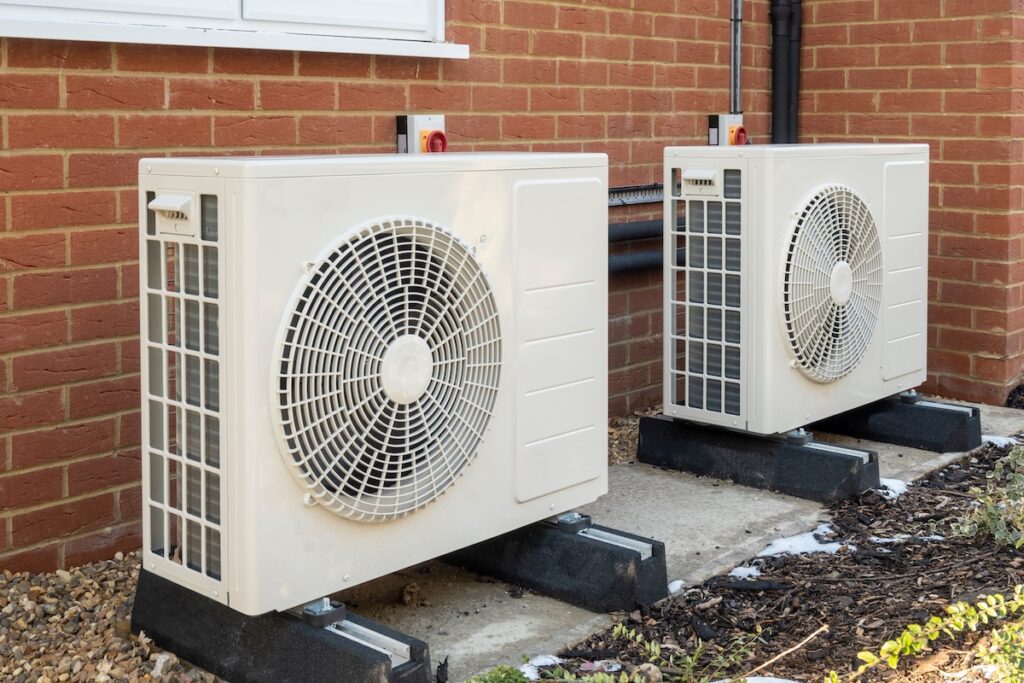The question “Are heat pumps worth it?” is becoming increasingly important as energy efficiency and sustainability take center stage in residential and commercial heating solutions. Whether you’re exploring options for eco-friendly installations or looking for cost-efficient ways to heat and cool your home, heat pumps are a popular choice.
This guide takes a deep look into the pros and cons of heat pumps, offering insights to help you make an informed decision. Here’s what we’ll cover:
- What is a heat pump and how does it work?
- A breakdown of the top benefits in a detailed list
- Drawbacks to consider
🤔 What is a heat pump and how does it work?

A heat pump is a highly efficient, versatile device that provides both heating and cooling for your home, offering a sustainable alternative to traditional HVAC systems. Unlike furnaces or air conditioners that rely on burning fuel or consuming large amounts of electricity to generate heat or cold, a heat pump operates by transferring heat from one place to another. This innovative technology makes heat pumps not only energy-efficient but also environmentally friendly, as they utilize less energy and reduce greenhouse gas emissions. Depending on the season, a heat pump can adapt to either heat or cool your home, creating a comfortable indoor environment year-round.
- During Winter: Heat pumps extract heat from the outdoor air (even in temperatures as low as 20°F) and transfer it inside to warm your space.
- During Summer: Heat pumps reverse the process, acting like an air conditioner by moving warm air from indoors to the outside, keeping your home cool.
✅ 7 Top benefits of heat pumps

Here are 7 specific benefits that make heat pumps a compelling option:
1. Greater energy savings
Heat pumps are an incredibly energy-efficient alternative to conventional heating systems like furnaces or boilers. They work by transferring heat rather than generating it, which allows them to use significantly less energy. On average, heat pumps can save up to 50% on heating bills. While the installation cost may be higher upfront, the long-term savings on energy bills often allow homeowners to recoup their investment over time. This makes heat pumps an excellent option for those looking to reduce both their utility expenses and their overall carbon footprint.
2. Compact size for small spaces
Many heat pump models are designed with space-saving in mind. Their sleek, compact design makes them ideal for smaller homes, apartments, or urban dwellings where space is at a premium. Unlike bulky traditional HVAC systems, these units can be installed unobtrusively, either mounted on walls or placed in tight outdoor spaces. This adaptability ensures that even homes with limited room can benefit from modern, energy-efficient heating and cooling.
3. Improved air quality
Heat pumps often come equipped with advanced air filtration systems that enhance indoor air quality. These built-in filters capture and remove pollutants, allergens, dust, and even odors from the air, creating a healthier and more comfortable living environment. For those who suffer from allergies or respiratory issues, this feature can make a significant difference in day-to-day comfort. Unlike some traditional systems, heat pumps continuously circulate and clean the air, ensuring a fresher indoor environment year-round.
4. Dehumidification in summer
Beyond cooling your home during warmer months, heat pumps are also excellent at reducing indoor humidity. High humidity levels can make your home feel uncomfortable, sticky, and even promote the growth of mold and mildew. Heat pumps dehumidify the air as they cool it, providing a more pleasant and balanced indoor climate. This dual functionality makes them an ideal choice for homes in hot, humid regions where controlling moisture is as important as maintaining a cool temperature.
5. Tax incentives and rebates
Installing a heat pump doesn’t just save you money on energy bills—it can also provide financial benefits through government incentives. Many federal, state, and local programs offer rebates, tax credits, or other incentives for homeowners who install energy-efficient systems like heat pumps. These initiatives are part of larger efforts to promote sustainability and reduce greenhouse gas emissions. By taking advantage of these programs, you can significantly lower the upfront cost of installation while contributing to a greener future.
6. Smart controls and features
Modern heat pumps are packed with advanced technology, including smart controls and Wi-Fi connectivity. These features allow you to control your home’s temperature remotely using a smartphone or tablet, providing convenience and additional energy savings. You can schedule heating and cooling to align with your daily routine, ensuring comfort while avoiding unnecessary energy use. Some models even offer integration with smart home systems, allowing you to optimize energy usage and monitor performance effortlessly.
7. Flexible installation options
Heat pumps are highly adaptable to different home setups, offering flexible installation options based on your needs. They can be installed as part of a ducted system, distributing air evenly throughout your home, or as ductless mini-split units, which are perfect for homes without existing ductwork. This versatility ensures that heat pumps can suit a wide range of properties, from older homes to modern constructions, making them a practical and accessible solution for homeowners everywhere.
👉 Drawbacks to consider

Understanding potential drawbacks is crucial to make informed decisions and avoid unexpected challenges. Being aware of limitations helps you prepare better and choose the right solutions.
High installation costs
The upfront cost of installing a heat pump can be a significant financial hurdle for many homeowners. Heat pumps are more expensive than traditional heating or cooling systems due to the advanced technology and specialized components involved. Installation often requires professional expertise, which can add to the overall cost. While the long-term energy savings can offset these expenses, it may take several years to see a return on investment. This could deter homeowners who are looking for more immediate cost-effective solutions, particularly in regions where energy prices are lower or where other heating systems are already in place.
Declining efficiency in extreme cold
Heat pumps are designed to extract heat from the air, even in cold climates. However, in regions where temperatures regularly drop below freezing for extended periods, their efficiency can decrease significantly. This happens because there is less heat available in the outdoor air for the pump to draw in and transfer indoors. To address this issue, many systems are paired with supplemental heating sources, such as electric resistance heaters or gas furnaces, to ensure consistent warmth during extreme cold spells. While this combination improves reliability, it can also increase operational costs, partially negating the energy savings that make heat pumps appealing in the first place.
Maintenance and lifespan
For heat pumps to operate efficiently year-round, regular maintenance is essential. These systems handle both heating and cooling, meaning they run almost continuously throughout the year, unlike traditional HVAC systems that often operate seasonally. Components like compressors, fans, and refrigerant lines are subject to wear and tear from constant use. Neglecting routine maintenance, such as cleaning filters, checking refrigerant levels, and inspecting key parts, can lead to reduced performance and higher energy consumption. Furthermore, the lifespan of a heat pump typically ranges from 10 to 15 years, which is shorter than some other heating options, like boilers, meaning homeowners may face replacement costs sooner than expected.
Noise concerns
Outdoor units of certain heat pump models can generate noticeable noise during operation, particularly in colder months when defrost cycles are more frequent. This noise comes from the compressor and fans working harder to remove ice buildup and maintain efficiency. In densely populated areas or homes with outdoor units placed near living spaces, this can become a source of disturbance, especially at night. However, manufacturers are continuously improving designs to reduce noise levels. Newer models often feature quieter compressors and sound-dampening technology, making them less intrusive and better suited for residential neighborhoods where noise concerns are a priority.
🏠 Heat Pump Pros
When it comes to deciding if heat pumps are worth it, having a reliable HVAC partner by your side is key. At Palmetto Air Conditioning, we bring over 20 years of experience, a commitment to transparency, and a customer-first approach to every job. Whether you’re looking to install a new heat pump, repair an existing system, or explore energy-efficient options, our team of certified technicians is here to help.
With flexible financing, honest service, and 24/7 emergency support, you can trust us to keep your home comfortable all year round. Ready to take the next step? Contact Palmetto Air Conditioning today for a consultation and let us help you find the perfect heating solution for your home!
